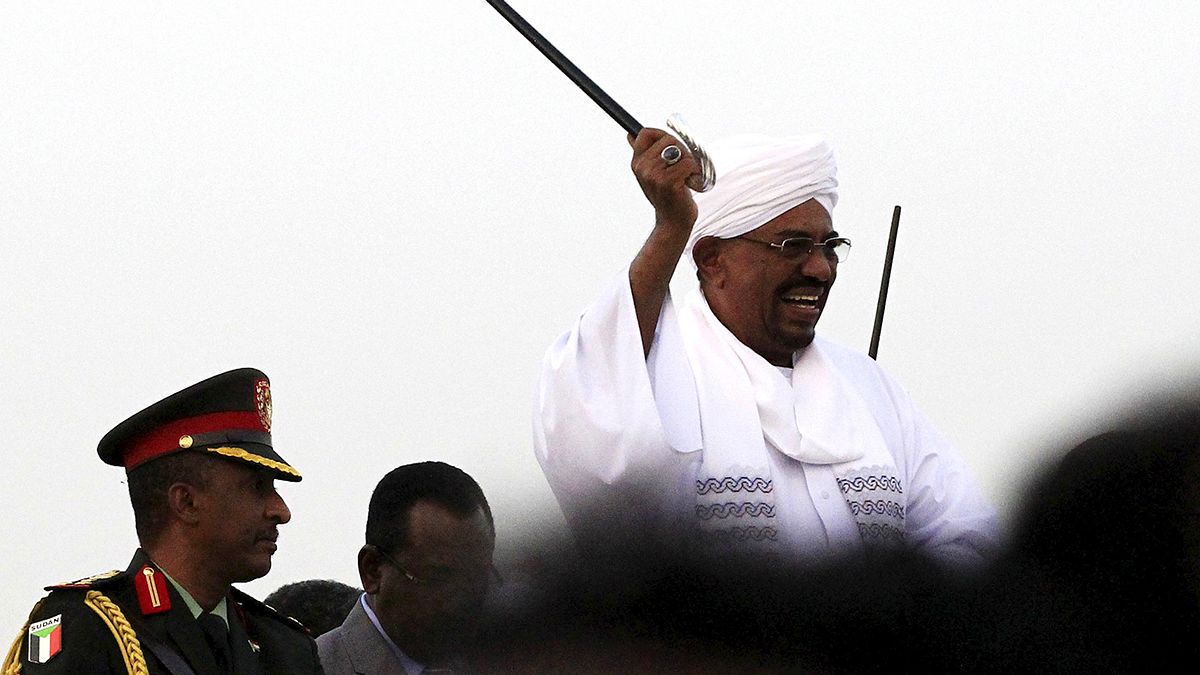They are accused of some of the most horrific crimes imaginable, including genocide, murder and forcing children to be sex slaves.
Yet despite this, several of the world’s most-wanted are still at large.
The International Criminal Court (ICC) – established exactly 17 years ago – has put warrants out for their arrest, but so far without success.
To mark the World Day for International Justice (July 17) we take a look at five of the most-wanted (see below).
William Pace, convenor of the Coalition for the International Criminal Court, told Euronews global justice had advanced well over the last two decades. But he called on the ICC to reform in order to speed up bringing people to justice.
He said: “The last 20 years have been almost a revolution in the development of international justice, and in particular international criminal justice. The have been international tribunals for crimes committed in Cambodia, Timor Leste, Rwanda, Yugoslavia, Sierre Leone. And, the ICC, about which it was said it would ‘never have any cases’ is examining, investigating or prosecuting crimes in 15 or so situations in Africa, Middle East, Asia, South America. And there have been national trials for crimes against humanity conducted in some 30 countries. It took 30 years to secure arrests for leaders of Cambodia and Honduras and Argentina, more than 10 years for some of those wanted for crimes committed in the former Yugoslavia.
“The biggest difference is that the ICC is permanent – and even though the US, Russia, China have not ratified the treaty, they have conferred jurisdiction on the Court in the cases of Sudan and Libya.
“The challenges going forward include that as the jurisdiction of the ICC continues to expand, the threat and opposition to the ICC will continue to expand, especially among dictatorships, major powers and militarists. All of the tribunals have taken years to long in conducting investigations and trials – the ICC must adopt major reforms to address this issue.
“On South Africa (see Omar al-Bashir, below), it was a clear example of the paradox of the politics of international justice. The head of government ignored South African law, but the high court did not, and it is not clear how this legal confrontation will end.
“But, because of the Rome Statute, the rule of law in international affairs has advanced in ways no one predicted possible only a few years ago.”
Five most-wanted by the ICC
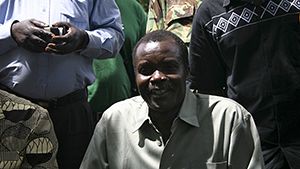 Kony: wanted since 2005
Kony: wanted since 2005
Joseph Kony
It’s a decade since the ICC put out a warrant for the arrest of Kony, who is alleged to be the commander-in-chief of the Lord’s Resistance Army (LRA).
Kony claims his movement is trying to install a government in Uganda, based around the 10 commandments of the bible.
He is accused of war crimes and crimes against humanity, including murder, rape and sexual enslavement.
War Child says Kony “led a terrifying regime targeting attacks on innocent civilians, kidnapping children and forcing them to fight in his rebel forces”.
The charity added: “Children have been affected the most acutely by this conflict, with thousands abducted, used as child soldiers and sex slaves, beaten and forced to torture and kill friends, family and innocent people.”
The LRA first emerged in 1986 and has since terrorised areas over the border from Uganda, including southern Sudan, the Democratic Republic of Congo and the Central African Republic.
ICC warrants are still active for Kony’s alleged deputies Okot Odhiambo and Vincent Otti, despite LRA claims they have been killed in battle.
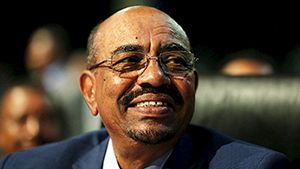 Al-Bashir: wanted since 2009
Al-Bashir: wanted since 2009
Omar al-Bashir
Sudan’s president Omar al-Bashir is the highest profile on the most-wanted list – he became the first sitting head of state to be wanted by the ICC.
He has been accused of being the mastermind of a campaign of genocide, murder, rape and torture in Sudan’s Darfur region.
Al-Bashir, who has been president since 1993, had a warrant for his arrest issued by the ICC six years ago.
The warrant did not stop him winning re-election in 2010 and 2015.
Earlier this year he had to leave South Africa hastily while a court decided whether to enforce the ICC’s arrest warrant.
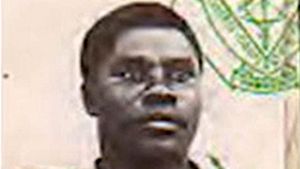 Mudacumura: wanted since 2012
Mudacumura: wanted since 2012
Sylvestre Mudacumura
Sylvestre Mudacumura has been wanted by the ICC for three years and stands accused of war crimes, including murder, mutilation and torture.
Mudacumura is alleged to be the supreme commander of the Democratic Forces for the Liberation of Rwanda.
The ICC says his crimes happened over the border in the Democratic Republic of Congo.
After Rwanda’s genocide – carried out by ethnic Hutus against Tutsis – more than two million Hutus are believed to have poured over the border into DR Congo.
Once there they allied with government forces and began to attack ethnic Tutsis in DR Congo.
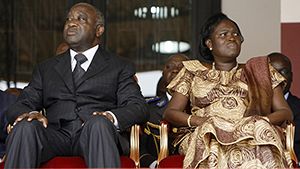 Simone Gbagbo, right, wanted since 2012
Simone Gbagbo, right, wanted since 2012
Simone Gbagbo
Ivory Coast’s former first lady Simone Gbagbo is wanted over violence in the country after elections in 2010.
The ICC says she bears individual criminal responsibility for crimes against humanity, including murder, rape and persecution.
The ICC trial of her husband, former president Laurent Gbagbo, is set to start in November.
Earlier this year Simone Gbagbo was jailed for 20 years in the Ivory Coast for her role in the post-election violence.
But despite the sentencing, the ICC still wants Simone Gbagbo to stand trial in The Hague.
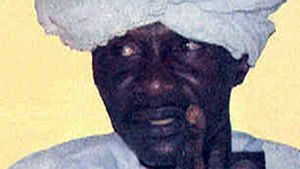 Kushayb: wanted since 2007
Kushayb: wanted since 2007
Ali Kushayb
Ali Kushayb is said to be the leader of the Janjaweed militia allegedly behind war crimes and crimes against humanity in Sudan’s Darfur region.
He is wanted for murder, torture, pillaging and rape.
In June an ICC prosecutor urged the United Nations Security Council to act.
Fatou Bensouda said: “It is long overdue for you to heed the cries of the victims of rape and sexual abuse, torture, mass displacement and other inhumane suffering Darfurians continue to endure.”
“Innocent civilians continue to bear the brunt of insecurity and instability, in particular as a result of what appears to be an ongoing government campaign to target them.
“The people alleged to be most responsible for these ongoing atrocities are the same people against whom warrants of arrest have already been issued.”


